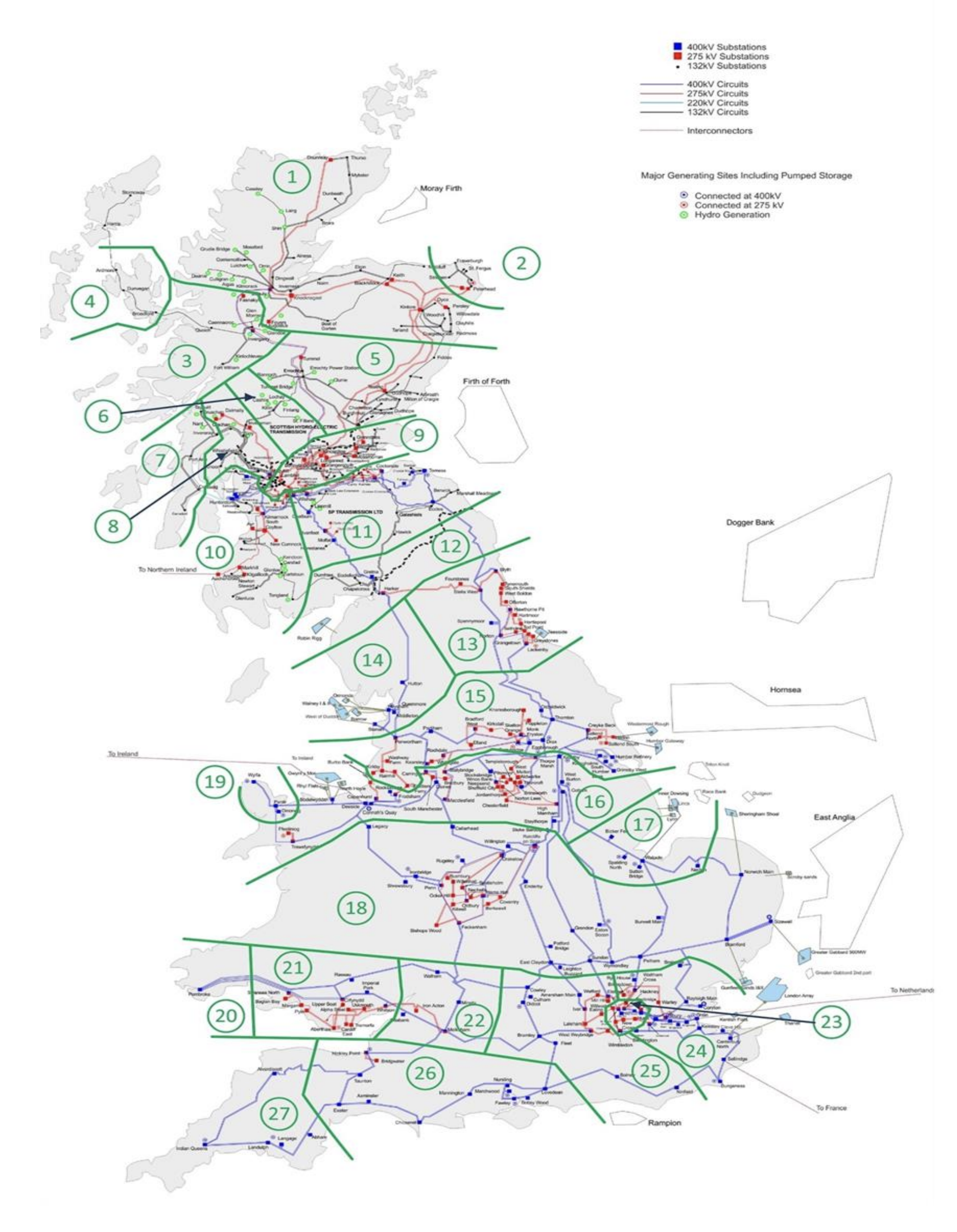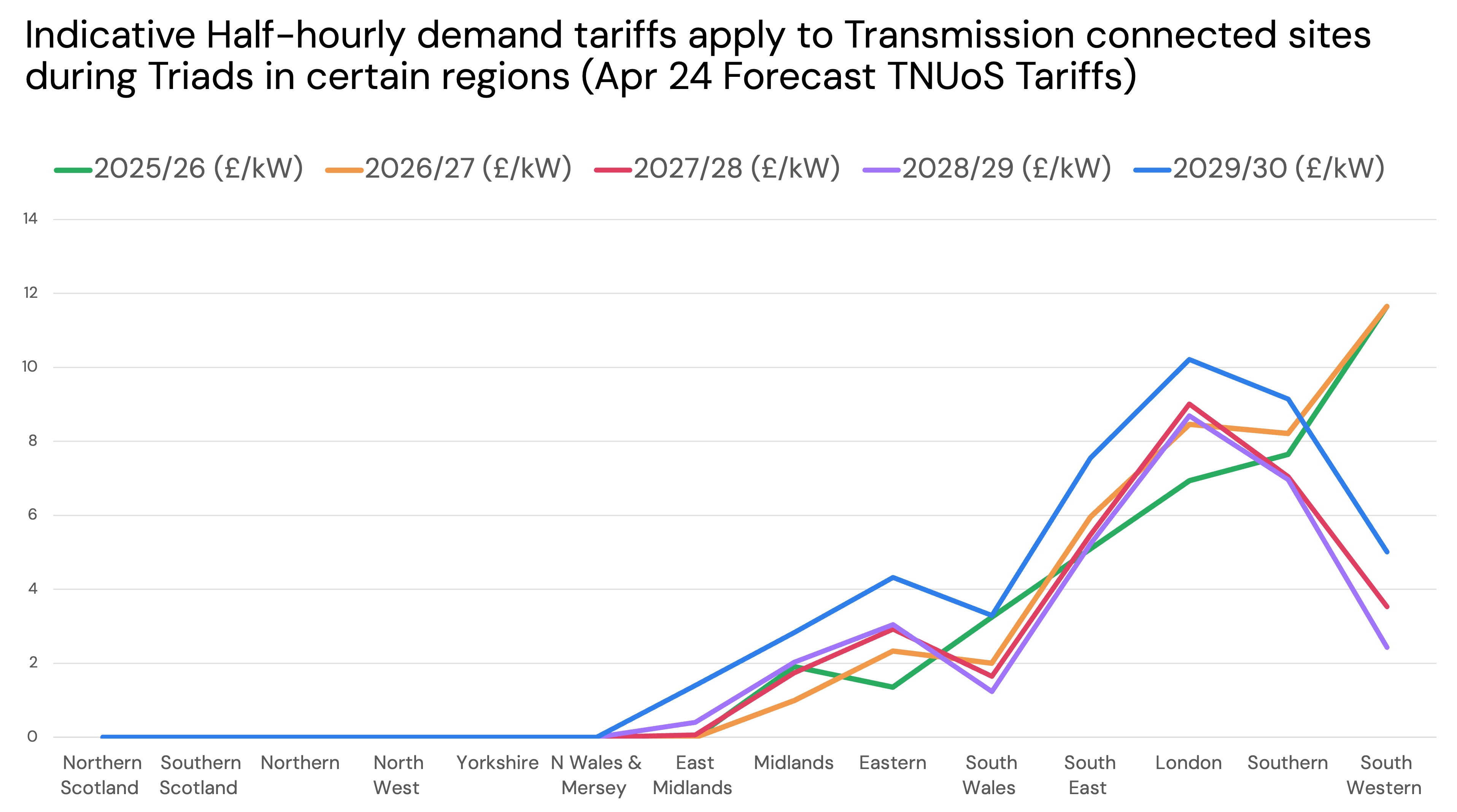Wider generation TNUoS forecasts
BESS sites that are transmission connected or of capacity >=100MW face wider generation TNUoS charges.
These are flat rates that a site must pay each year.
Wider Generation TNUoS charges feature in both the Run Library and in Custom Runs.
Transmission-connected batteries pay fixed TNUoS
Export rates for transmission-connected generation have shifted from time-of-use (via the Triad mechanism) to a fixed rate via the Wider Generation tariffs. This is a result of the Targeted Charging Review.
The rate can be positive or negative and varies throughout the country. See Figure 4 here.
For example, let's model a transmission-connected battery site in South Wales, due to come online during 2028
Transmission-connected batteries fall into the 'Convention Carbon' generating class for TNUoS calculations.
The calculation for the Wider TNUoS tariff, Conventional Carbon, is:

Taking numbers from the 5-year view of TNUoS tariffs, in the year 2028/2029 (p.14) and assuming the site has no historical data, we use an Annual Load Factor (ALF) generic for storage of 1.6301% (p.71).
This gives the calculation:
6.711930 + (- 7.300407 x 1.6301%) + (0 x 1.6301%)+ - 2.997585 £/kW = 3.5953 £/kW (to 4 significant figures), or £3595/MW/year.
We use the ESO Wider Generation TNUoS forecasts to inform our projections
The Electricity System Operator has produced Wider Generation TNUoS forecasts for 2025-2029.
We use these and push the final value forwards for the rest of the forecast horizon, depending on the Generation Zone of a site.
Wider Generation TNUoS in the Modo Forecast
Tariffs are given per Generation Zone:

In the run library, users can pick the distribution region of their run. DNO regions have a many-to-many relationship with generation zones, so we have used the following mapping for simplicity:
| Distribution Network Region | Assumed Generation Zone |
|---|---|
| East Midlands | South Lincolnshire and North Norfolk |
| Eastern | Mid Wales and The Midlands |
| Merseyside & North Wales | North Midlands and North Wales |
| Midlands | Mid Wales and The Midlands |
| North Western | North Lancashire and The Lakes |
| North of Scotland | North Scotland |
| Northern | North East England |
| South Eastern | Essex and Kent |
| South Wales | South Wales & Gloucester |
| South of Scotland | Lothian and Borders |
| Southern | Somerset and Wessex |
| Yorkshire | South Lancashire, Yorkshire and Humber |
| South Western | West Devon and Cornwall |
| London | Central London |
Specific generation zones are available via custom runs.
Transmission-connected assets that import during triad periods will also be subject to Half Hourly Demand Tariffs
These vary depending on the region. In the Modo forecast for GB, we assume that no battery will import during a triad period. Thus we do not factor in the cost of this demand tariff in our TNUoS revenues.

Updated 3 months ago